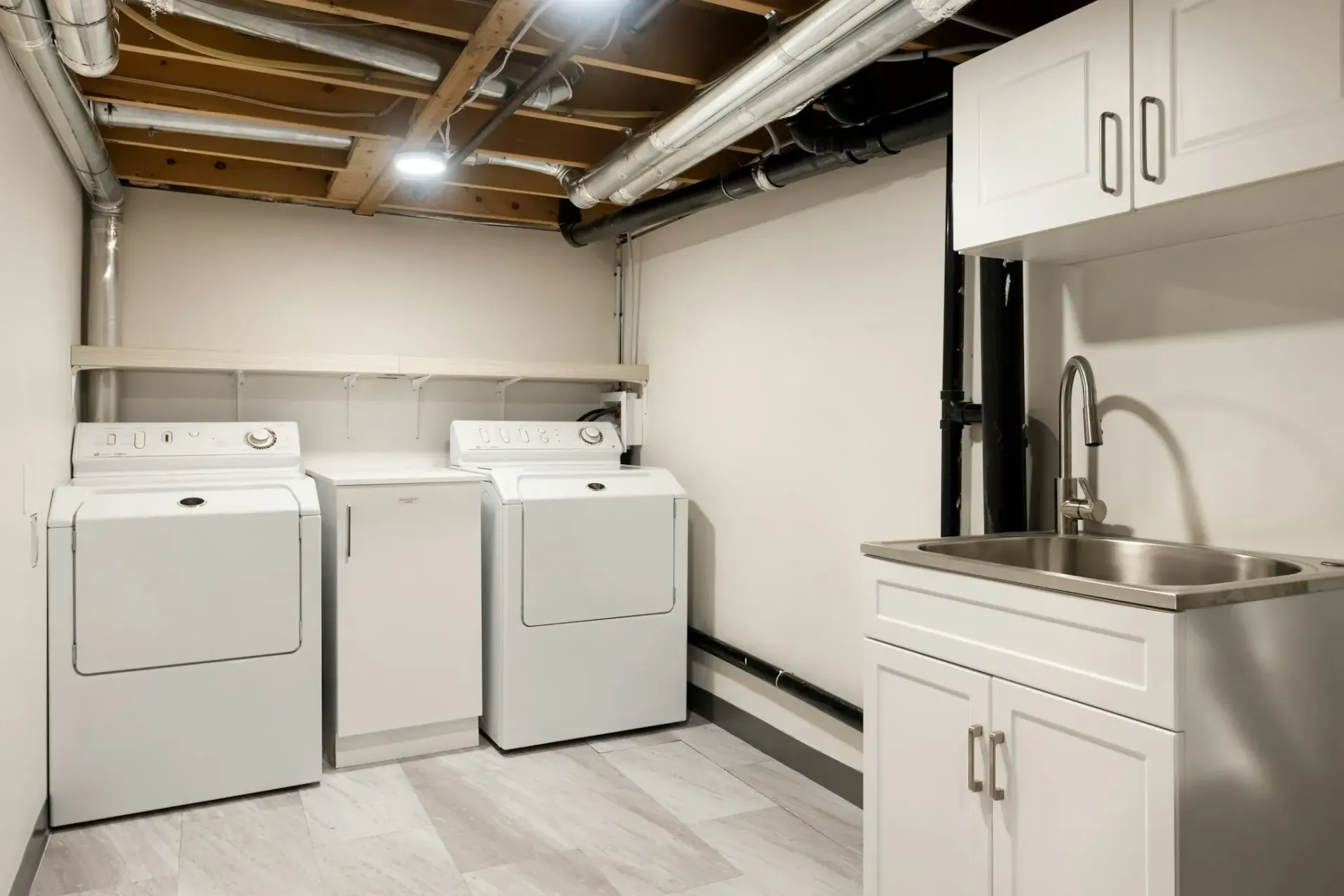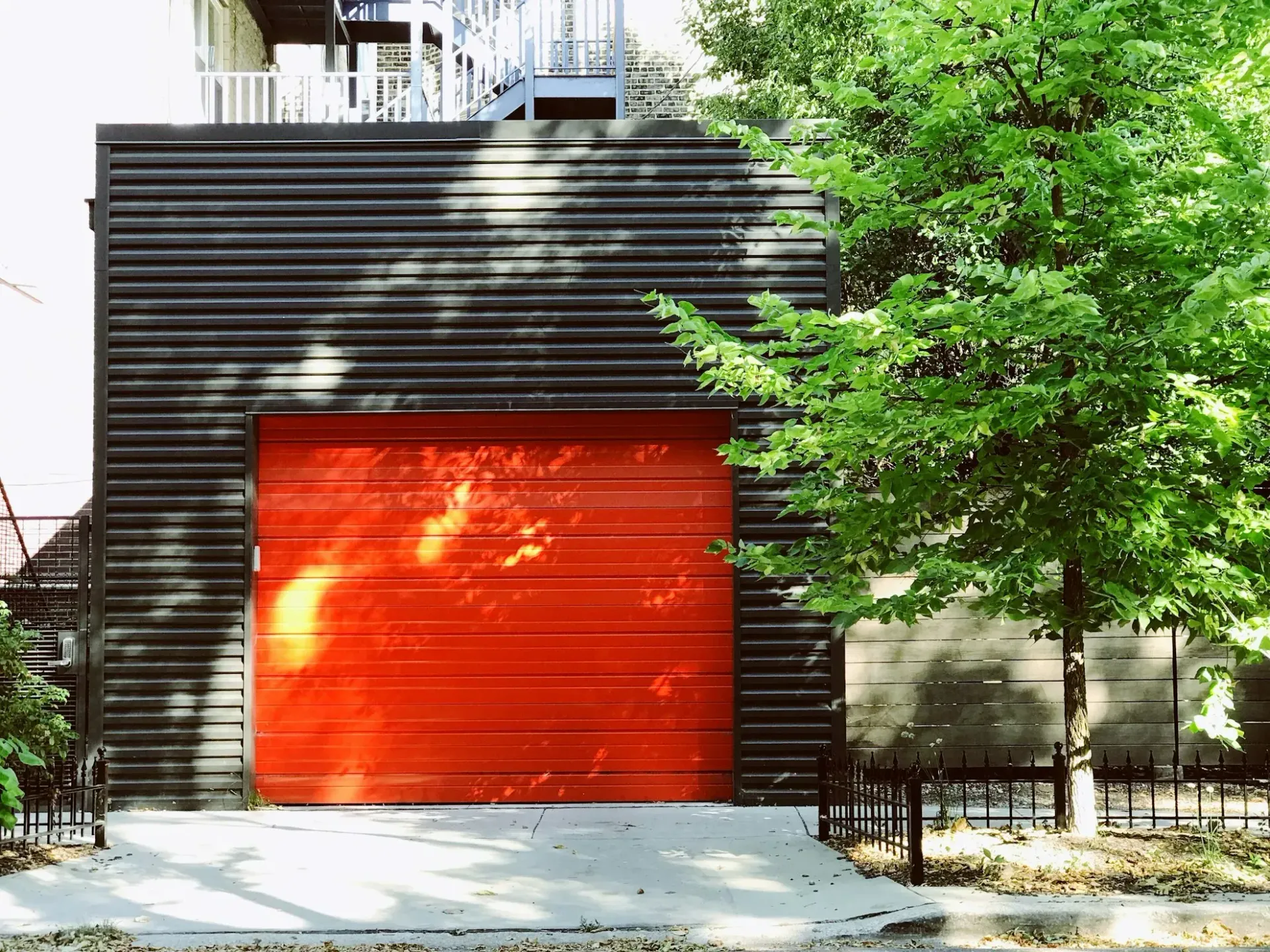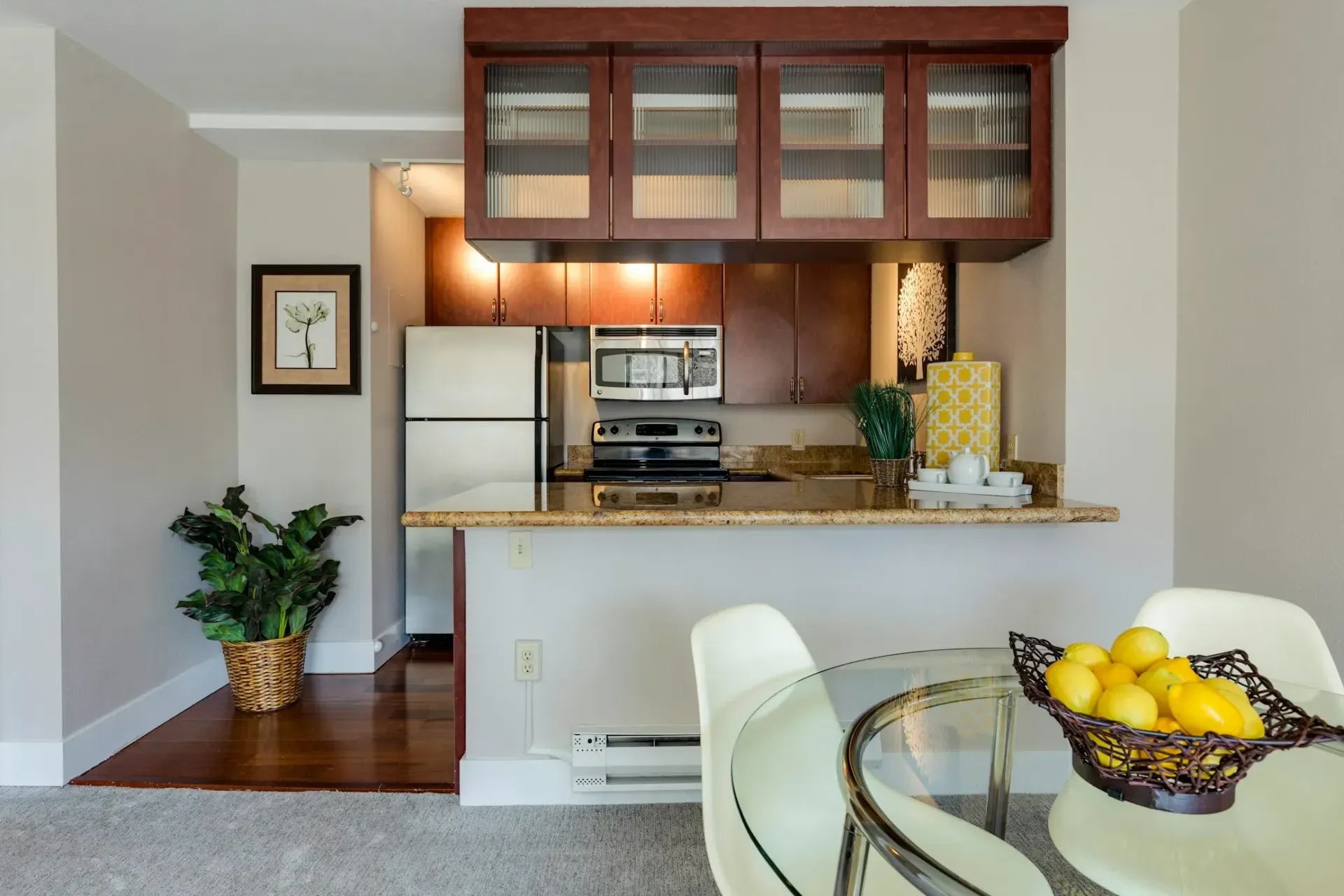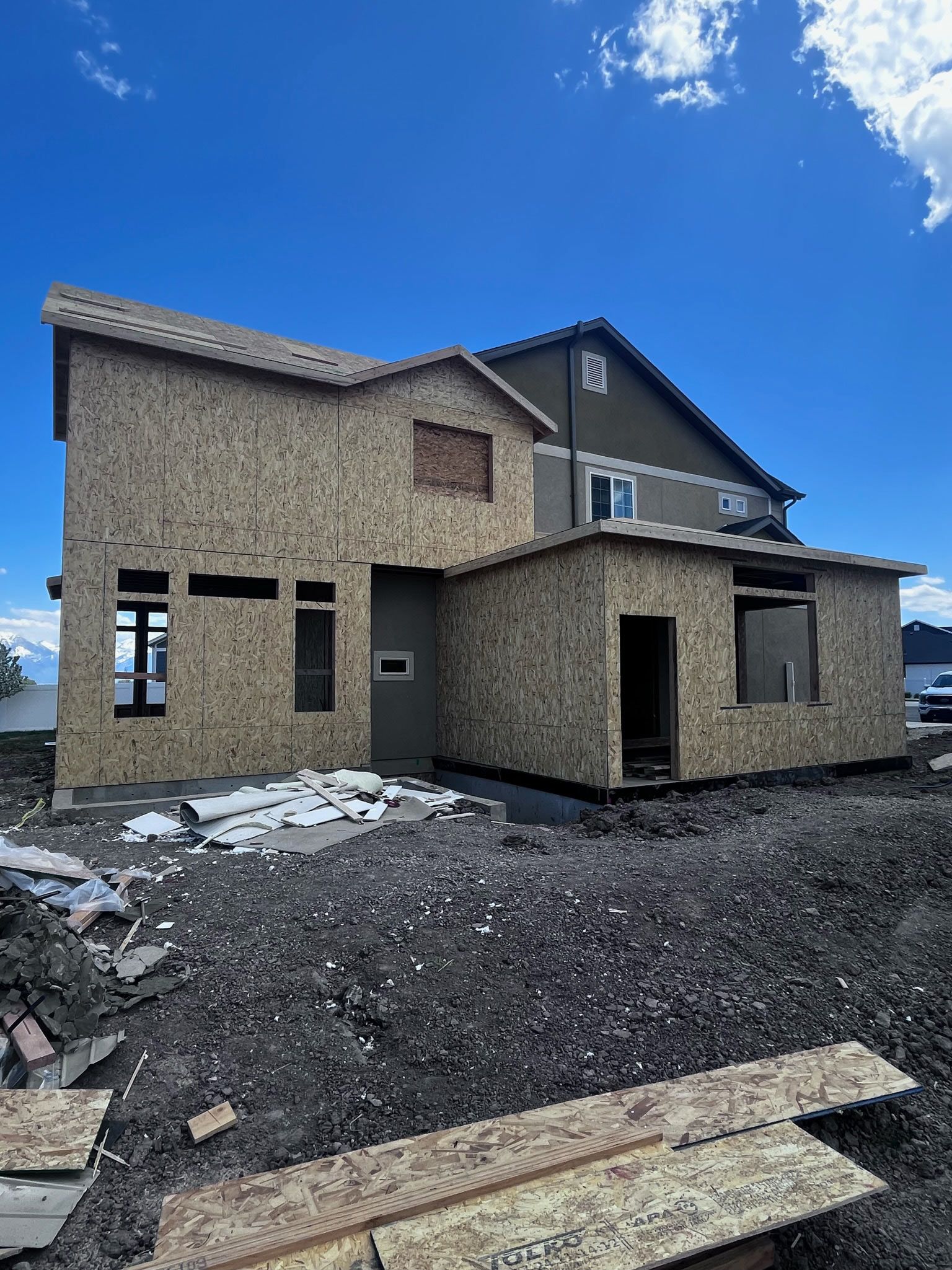Ultimate Guide to Home Renovation Services
Comprehensive Guide to Basement Finishing, Home Remodels, Additions, AND BATHROOM AND KITCHEN REMODELING

Home renovations can transform your living space, boost your home's value, and enhance your quality of life. Whether you're considering finishing your basement, remodeling your kitchen, or adding a new room, understanding the process is crucial. This guide covers five key home renovation services: Basement Finishing, Home Remodels, Home Additions, Bathroom Remodeling, and Kitchen Remodeling.

Basement Finishing
What is Basement Finishing?
Basement finishing involves transforming an unfinished basement into a usable, livable space. It can be an extra bedroom, a home office, a gym, or even a home theater. Finishing your basement adds significant value to your home and provides extra space without the need for an addition.
For more details, read our Complete Basement Finishing Guide (coming soon).
Steps Involved in Basement Finishing
- Initial Assessment and Planning
- Start with an inspection to check for moisture issues, structural problems, and code requirements.
- Plan the layout, including walls, flooring, and utilities. Learn more about planning in our Basement Planning Tips (coming soon).
- Waterproofing and Insulation
- Address any moisture issues first. Install a sump pump if needed.
- Insulate walls to improve energy efficiency and comfort. Check out our Waterproofing Solutions (coming soon).
- Electrical and Plumbing Work
- Run electrical wiring for lighting, outlets, and any appliances.
- Install plumbing if adding a bathroom or wet bar.
- Framing and Drywall
- Frame the walls and ceilings.
- Install drywall and finish with mudding and sanding.
- Flooring and Finishing Touches
- Choose appropriate flooring materials like carpet, vinyl, or tile.
- Add trim, paint the walls, and install any fixtures or built-ins. For ideas, visit our Basement Finishing Touches (coming soon).
Cost of Basement Finishing
The cost of basement finishing varies based on the size of the basement, the materials used, and the complexity of the design. In addition, it can vary drastically based on the type of finish.
FAQs for Basement Finishing
How long does basement finishing take?
Basement finishing can take anywhere from 4 to 8 weeks, depending on the complexity and size of the project.
Do I need a permit for basement finishing?
Yes, most areas require permits for basement finishing. Check with your local building department for specific requirements.
What are the common issues to watch out for?
Moisture problems, inadequate insulation, and improper electrical work are common issues. Address these early to avoid complications.

Home Remodels
Overview of Home Remodeling
Home remodeling involves updating and improving existing spaces in your home. It can range from simple cosmetic changes to major structural overhauls. Remodeling enhances your home's aesthetics, functionality, and value, making it a worthwhile investment.
For more details, read our Complete Home Remodeling Guide (coming soon).
Common Types of Home Remodels
- Living Room Remodels
- Updating flooring, paint, lighting, and furniture.
- Adding features like built-in shelves or a fireplace. Get inspired by our Living Room Remodel Ideas (coming soon).
- Bedroom Remodels
- Enhancing space with new closets, lighting, and decor.
- Possible structural changes like expanding the room or adding an ensuite bathroom.
- Whole House Remodels
- Comprehensive updates to multiple areas of the home.
- Can involve reconfiguring layouts, updating systems (electrical, plumbing), and modernizing all rooms. Learn more about Whole House Remodeling (coming soon).
Planning a Home Remodel
- Budgeting
- Set a realistic budget considering all costs (materials, labor, permits).
- Include a contingency fund for unexpected expenses. For tips, read our Home Remodeling Budget Guide (coming soon).
- Finding the Right Contractor
- Research and interview multiple contractors.
- Check references, previous work, and reviews.
- Designing and Planning
- Work with a designer to create a plan that meets your needs and style.
- Obtain necessary permits and approvals before starting work.
Cost of Home Remodels
The cost of home remodels varies widely depending on the scope of the project, the materials used, and the location. For example, a living room remodel can cost between $10,000 and $30,000, while a whole house remodel can range from $100,000 to $300,000 or more.
FAQs for Home Remodels
How do I choose a remodeling contractor?
- Look for licensed, insured contractors with good reviews and a solid portfolio. Get multiple quotes and ask for references.
What should I consider before starting a remodel?
- Think about your goals, budget, and timeline. Plan for temporary living arrangements if needed during extensive remodels.
How do I avoid going over budget?
- Plan thoroughly, set a realistic budget, and include a contingency fund. Communicate clearly with your contractor and monitor expenses closely.

Home Additions
What are Home Additions?
Home additions involve adding new space to your existing home. This could be a new room, a second story, or converting a garage. Home additions increase your living space and can significantly boost your home's value.
For more details, read our Complete Guide to Home Additions (coming soon).
Types of Home Additions
- Room Additions
- Adding a new bedroom, bathroom, or living space.
- Common for growing families needing more space. Explore our Room Addition Ideas (coming soon).
- Second-Story Additions
- Adding an entire new floor to your home.
- Ideal for maximizing space on smaller lots.
- Garage Conversions
- Converting a garage into a livable space such as a guest suite, home office, or gym.
- Efficient way to utilize existing structures. Check out our Garage Conversion Tips (coming soon).
Planning a Home Addition
- Budgeting and Financing
- Determine the cost and explore financing options such as home equity loans.
- Set a budget that includes a contingency for unexpected expenses. Read our Home Addition Budget Guide (coming soon).
- Permits and Regulations
- Check local zoning laws and building codes.
- Obtain necessary permits before starting the project.
- Design and Construction Process
- Work with an architect or designer to create plans.
- Hire a reputable contractor to handle the construction.
Cost of Home Additions
The cost of home additions varies based on the size and complexity of the project. Room additions can cost between $20,000 and $75,000, while second-story additions can range from $100,000 to $300,000. Garage conversions typically cost between $10,000 and $50,000.
FAQs for Home Additions
How long does it take to complete a home addition?
- The timeline can range from a few months to over a year, depending on the project's scope and complexity.
Do home additions increase property taxes?
- Yes, adding square footage to your home can increase your property taxes. Check with your local tax assessor's office for details.
What should I consider when planning a home addition?
- Consider your long-term needs, budget, and the impact on your home's layout and value. Ensure the addition blends seamlessly with the existing structure.

Bathroom Remodeling
Overview of Bathroom Remodeling
Bathroom remodeling involves updating and improving your bathroom's appearance and functionality. This can range from simple updates like new fixtures and paint to complete overhauls. A well-executed bathroom remodel enhances comfort, usability, and home value.
For more details, read our Complete Bathroom Remodeling Guide (coming soon).
Steps in Bathroom Remodeling
1. Planning and Design
- Determine your goals, whether it's updating fixtures, improving layout, or creating a spa-like retreat.
- Work with a designer to create a plan that meets your needs and budget.
2. Demolition and Preparation
- Remove old fixtures, tiles, and any elements that need replacing.
- Prepare the space for new installations, ensuring plumbing and electrical systems are up to code. Check our Bathroom Demolition Tips (coming soon).
3. Plumbing and Electrical Work
- Update plumbing for new fixtures, such as sinks, toilets, and showers.
- Install new lighting and ensure proper electrical outlets are in place.
4. Installing Fixtures and Finishes
- Install new fixtures like sinks, toilets, bathtubs, and showers.
- Finish with new tiles, flooring, and paint. For ideas, visit our Bathroom Finishing Touches (coming soon).
Cost of Bathroom Remodeling
The cost of bathroom remodeling varies depending on the extent of the remodel and the quality of materials used. On average, a mid-range bathroom remodel can cost between $10,000 and $25,000, while an upscale remodel can exceed $50,000.
FAQs for Bathroom Remodeling
How long does a bathroom remodel take?
- A bathroom remodel typically takes 3 to 8 weeks, depending on the scope and complexity of the project.
What are the most popular bathroom remodeling trends?
- Trends include large walk-in showers, freestanding bathtubs, double vanities, and energy-efficient fixtures.
Do I need a permit for a bathroom remodel?
- Yes, most bathroom remodels require permits, especially if plumbing or electrical work is involved. Check with your local building department.

Kitchen Remodeling
Overview of Kitchen Remodeling
Kitchen remodeling involves updating and improving the kitchen's functionality, aesthetics, and efficiency. This can range from simple changes like new countertops and appliances to complete redesigns. A well-planned kitchen remodel can enhance your cooking experience and significantly increase your home's value.
For more details, read our Complete Kitchen Remodeling Guide (coming soon).
Steps in Kitchen Remodeling
1. Planning and Design
- Identify your goals, whether it's increasing storage, updating appliances, or creating an open-concept space.
- Work with a designer to develop a detailed plan, including layout, materials, and budget. Learn more in our Kitchen Planning Guide (coming soon).
2. Demolition and Prep Work
- Remove old cabinets, countertops, and appliances.
- Prepare the space for new installations, ensuring proper plumbing and electrical setup.
3. Installing Cabinets, Countertops, and Appliances
- Install new cabinets and countertops, ensuring they are level and secure.
- Install new appliances, ensuring they are connected to the appropriate utilities.
4. Finishing Touches and Cleanup
- Add backsplash, lighting, and hardware.
- Paint walls, install flooring, and ensure everything is cleaned and ready for use. For inspiration, visit our Kitchen Finishing Touches (coming soon).
Cost of Kitchen Remodeling
The cost of kitchen remodeling varies widely based on the scope of the project and the quality of materials used. A minor remodel can cost between $10,000 and $20,000, while a major overhaul can exceed $50,000.
FAQs for Kitchen Remodeling
How long does a kitchen remodel take?
- A kitchen remodel typically takes 6 to 12 weeks, depending on the project's complexity and scope.
What are the latest kitchen design trends?
- Popular trends include open shelving, quartz countertops, smart appliances, and large kitchen islands.
Do I need a permit for a kitchen remodel?
- Yes, most kitchen remodels require permits, especially if you are altering the layout, plumbing, or electrical systems. Check with your local building department.
Conclusion
Home renovation projects can significantly enhance your living space and boost your property's value. From finishing your basement to remodeling your kitchen, each service offers unique benefits tailored to your needs. This guide provided an overview of the essential steps, costs, and considerations for Basement Finishing, Home Remodels, Home Additions, Bathroom Remodeling, and Kitchen Remodeling. By planning carefully and choosing the right professionals, you can achieve stunning results that transform your home.
Call to Action
Ready to transform your home? Contact Foundation Finishes today to schedule a consultation. Our expert team specializes in Basement Finishing, Home Remodels, Home Additions, Bathroom Remodeling, and Kitchen Remodeling. Serving Centerville, UT, we deliver top-notch service and exceptional results. Get started on your dream renovation now!
Visit our website or call us at [your contact number] to book your appointment. Let's bring your vision to life!


